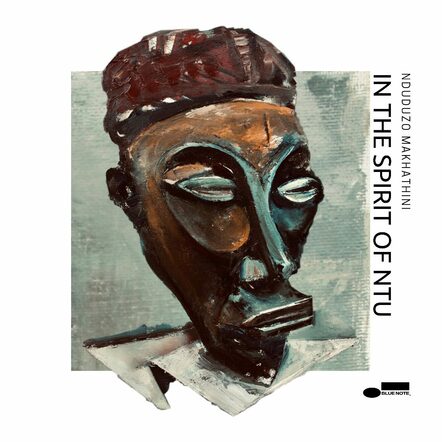New York, NY (Top40 Charts) On May 27, the visionary South African pianist, composer, and healer Nduduzo Makhathini will release In the
Spirit of Ntu, his milestone tenth studio album, his second album to be released on Blue Note Records in partnership with Universal
Music Group Africa/Universal
Music following Modes of Communication (which The New York Times named one of the "Best Jazz Albums of 2020"), and the very first release on the newly formed imprint Blue Note Africa. The album is introduced by the powerful lead single "Senze'Nina" which is available to stream or download today.
Makhathini condenses the thematic, sonic, and conceptual notions explored over his catalog into a layered yet accessible 10-track album on In the
Spirit of Ntu. "I really felt this need to summarize everything I've done this far and put it into 'some' context," he says. A central figure of the country's vibrant jazz scene, Makhathini assembled a band consisting of some of South Africa's most exciting young musicians including saxophonist
Linda Sikhakhane, trumpeter
Robin Fassie Kock, vibraphonist Dylan Tabisher, bassist Stephen de Souza, percussionist Gontse Makhene, and drummer Dane Paris, as well as special guests including vocalists Omagugu and Anna Widauer, and American saxophonist Jaleel Shaw.
Folding a range of concepts such as 'minor and major rhythms,' 'guided mobility,' 'active listening,' and 'ritualism' into the project, Makhathini draws on his background in Zulu traditions and intellectual curiosities to inform his engaging articulations. "I'm grappling with these cosmological ideas as a way of situating jazz in our context," he says. "I put out Modes of Communication: Letters from the Underworlds using the letter as a metaphor for the sounds coming from the underworlds. Previously, I had released Listening to the Ground which encored into this idea of listening as knowing. In the
Spirit of Ntu is living in that paradigm of listening to the things that emerge from the ground. Ntu is an ancient African philosophy from which the idea of Ubuntu stems out. Ubuntu says: 'I am because you are.' It is a deep invocation of collectiveness."
"'Senze'Nina' is a meditation on renewal," explains Makhathini. "While a similar phrase 'Senzenina?' (what have we done?) had been invoked to question the brutalities of apartheid South Africa — 'Senze'Nina' could be read as a plea. The theme was born inside of the recent incidents of gender-based violence and witnessing our sisters, daughters, and mothers asking themselves the question: 'senzenina?' As I meditated on this question, I realized a different meaning. I read the word as a kind of hyphenated word with the first part 'senze' (make/recreate us) and the second part 'nina' (referring to mothers, the makers and carriers). In this sense, I'm putting forward an argument that it is us (men) that need to be recreated, there is a part of us that has died for us to cause so much harm. Thus, we need to go back to our essence (Ntu), the womb of a mother and be recreated."
"This project was conceived at a difficult time in South Africa, a time of confusion and conflict," says Makhathini. "It was, once more, a period of burning fires, riots and massacres. In this sense, the music that I have composed is not surrounding these fires as a backdrop or soundtrack—these sounds are part of the discourse. They project from the burning fires until the fires stop burning. What remains is what these sounds seek to restore. Ntu as a creative force that seeks to lead us to remember our essence."
























